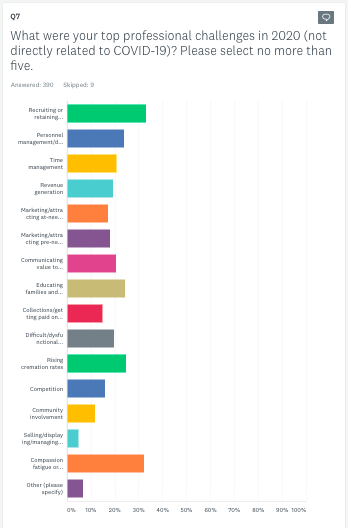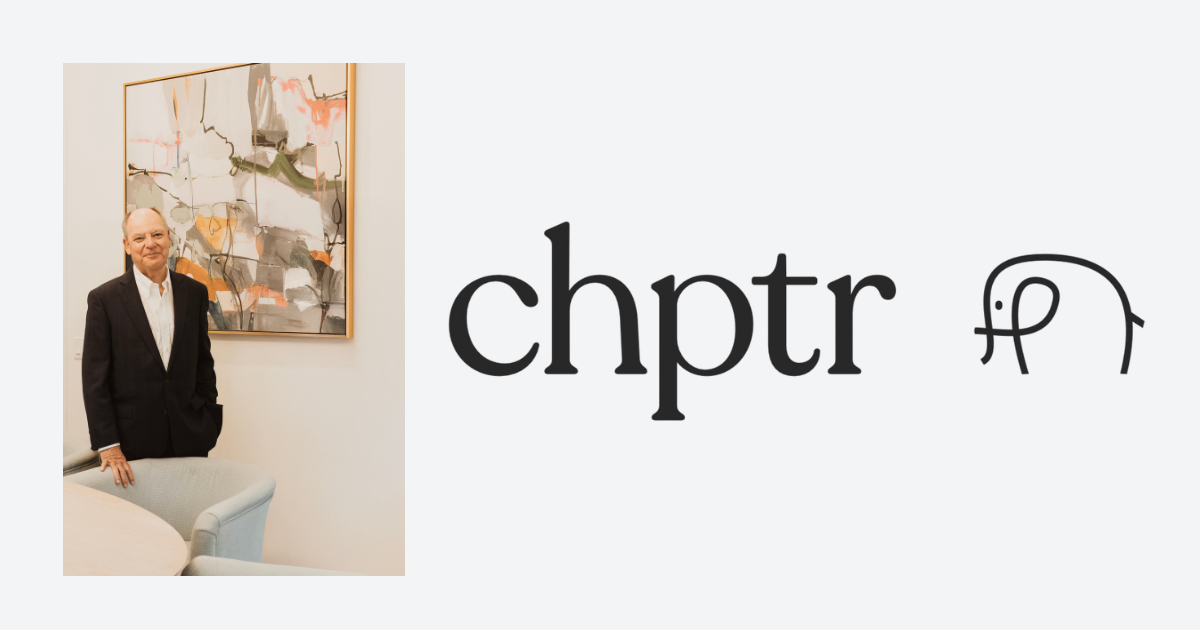Secrets to Deathcare Job Success: Matching Mort Grads with Management
According to a recent survey for funeral professionals put out by Connecting Directors, 33.8% of deathcare professionals identified recruiting and retaining quality employees as a professional challenge, making it the top-ranked hurdle faced by funeral homes today. This may not come as a surprise, considering the specialized training and high emotional demands required of the profession. However, death care can also be an extremely rewarding profession of service, and finding and keeping solid employees doesn’t have to be the hardest part of a funeral director’s job. Deathcare job success is possible for both established funeral professionals and new graduates of mortuary school.

In a conversation for the Deathcare Decoded podcast, Tanya Scotece, Professor of Funeral Service Education at Miami Dade College and licensed Funeral Director, offers her expert opinion about why the current gap between job-seeking students exiting mortuary school and funeral homes recruiting and retaining quality employees exists. Tanya has years of experience as a practicing funeral director, as well as a successful career as a mortuary science educator, so her unique perspective covers both sides of the hiring line, from students to funeral home offices. Below, we share her deathcare job success tips for both funeral home managers in the recruitment process and job-seeking mortuary school graduates.
Advice for Funeral Homes:
Make it easier for mortuary students to complete course requirements like observations at your funeral home
Tanya says, “Some of the classes that we have require students to do observations […] I would like to see more [..] local funeral homes have a system in place where the students can just go sign a form for confidentiality and have observation opportunities ready to go. As opposed to the students having to seek out an observation position and it’s almost like going through an HR process when maybe they just need to get those 5 observations done.”
Streamlining interactions with students will also save you and your current employees time and effort. Have a pre-loaded confidentiality form (and any other paperwork necessary to let mortuary students clock observation hours) so that students can come in, fill it out, schedule a time to observe, and be on their way back to class. This will add efficiency to your business and help everyone involved in the process.
Incentivize your current employees to accept and guide recruits
Tanya says, “for the seasoned funeral directors, I’d like to see funeral home owners and managers show more of an appreciation for their existing directors, [so they don’t] feel threatened by the incoming ones. People are always afraid that this new person is going to ‘take my job’ so value and appreciation for current employees would go a long way. I see and I hear in my classes that students have friction with seasoned directors, as new employees trying to make a home in the funeral world.”
She suggests offering a bonus or an extra vacation day to established funeral directors as an incentive to guide and help out new recruits. Setting up relationships of comradery and support among staff helps your current employees feel secure in their jobs when a new-comer is hired and prevents new employees from feeling unwelcome. This will lead to increased overall job satisfaction and help with both employee recruiting and retention.
Re-evaluate your company’s culture in an evolving industry and world
As new generations shift into the workforce and consumer markets, businesses have been evolving expectations and rules around formality and dress. Like many other professions that have relaxed dress code standards in the past few years, funeral directors should expect the aesthetics of new generations to evolve. In fact, millennial consumers may not expect (or want) a formal funeral home experience, both on the customer side, and the employee side.
When it comes to employment, research shows that millennial professionals are less likely to want a job that requires formal dress. According to one 2018 survey of 2000 adults, 61% of workers across ages and professions did not see an upside to strict work dress codes. Furthermore, that survey revealed that “the unhappiness with dress codes was strongest with millennials, the demographic group most likely to consider leaving a job over an office dress code. Around 18% of people ages 18 to 24 said that a strict dress code would make them consider quitting their jobs.

Psychologist and Occupational health expert Sir Cary Cooper explains,
“Strict policies have only persisted so far due to the attitudes of senior leadership, who grew up with the idea that wearing a suit and tie to work was the only way[…] There’s scant evidence that dress codes have a positive impact on well-being, productivity or perceptions of an organization […] Of those surveyed, 61% said the dress code had no positive impact on their productivity, while 45% said they’d be more productive wearing what they felt most comfortable in.”
Encourage self-care and mental health support for employees
Another high-ranking problem on the Connecting Directors survey was “Compassion Fatigue,” identified as the second biggest challenge among death care workers. It’s true that, though rewarding, death care can be an emotionally heavy job. Many industry professionals, including Tanya, have pointed out that supporting the mental health of funeral business employees is vital for cultivating positive company culture and avoiding worker burnout.
In the Deathcare Decoded Podcast episode titled A Path to Normalizing Mental Health in Deathcare, Jody Herrington, Location manager at Skylawn Memorial Park in Oakland, CA outlines why mental health is specifically important for death care workers. “This is such a high intensity job, often times it feels like there is no way to decompress, so that’s a big issue with funeral directors. You have all of this grief and trauma, but no decompression from it, because you’re always on, you’re available 24 hours a day, 7 days a week, 365 days a year.”
Mental health support is vital for employee success, and should be encouraged by management in death care businesses, especially when looking to hire top-ranking candidates from younger demographics. Millennials and gen-z employees are statistically more likely to leave a job for lack of mental health support, according to this article, which outlines that “a 2019 poll by the American Psychiatric Association found 62% of people ages 20 to 37 feel comfortable discussing their mental health at work, compared with about half as many people ages 54 to 72. And when they don’t feel supported by their jobs, many leave. Half of millennials—and 75% of Gen Z-ers, who in 2020 are ages 23 and under—said they had voluntarily or involuntarily left a job in part because of mental-health reasons, according to a 2019 survey of 1,500 U.S. workers by Mind Share Partners, a nonprofit that provides mental-health training for corporations.” Those numbers make it clear that offering more support for open dialogue and awareness of mental health will be a boon in retaining current employees as well as attracting new ones.
Advice for Mortuary School Graduates and Funeral Home Apprentices
Listen More Than You Speak
Tanya always reminds her students that “You have two ears and one mouth,” which translates to, listen twice as much as you speak. She knows that students may be eager and excited but urges them not to go into an observation or apprenticeship assuming they know everything. She suggests staying open to learning in order to avoid putting off potential employers with a know-it-all attitude. This helps students get the most out of their apprenticeships and observations and opens more doors for future employment.
Start practicing self-care now
This is a difficult profession to be in emotionally, and compassion fatigue is real. While many millennials and gen-z employees look for mental health support at work, and funeral home managers should absolutely be aware of the mental health needs of their employees, this is still an emotionally demanding career. If you want to be in this profession for the long haul, Tanya suggests establishing self-care regimens right from the start. Jody Herrington echoes Tanya’s suggestions, explaining that “decompression is something that is needed and necessary for [funeral professionals’] sustainability, but isn’t always possible, so you have to work to find ways to care for yourself in a healthy and safe way.” Whether your self-care is cuddling pets, caring for plants, exercise, time in nature, bubble baths, or established time away from screens, finding your outlet for stress and anxiety sooner rather than later can go a long way in a successful career in death care.
Aesthetics/Alternative Employment in Death Care
While formality and professionalism is evolving across many industries, Tanya wants mortuary school students to understand that adhering to an alternative personal aesthetic still might hinder their path to employment with more traditional funeral homes. If personal aesthetic freedom is an absolute dealbreaker when looking for a job, students could also look for alternative deathcare positions, like working for suppliers, death tech companies, becoming an independent death dula or celebrant etc.
Strengthening Your Team, Moving your Business Forward
Finding the right match between mortuary school graduates and funeral homes doesn’t have to be difficult. Investing in small policy changes, streamlining processes, and cultivating positive company culture will all go a long way towards attracting and keeping the best and brightest of deathcare’s next generation. Young employees bring the energy, deep knowledge of technology and innovation that many death care businesses today can still be lacking. When combined with the expertise and knowledge of established funeral professionals, this makes for a strong, well-rounded team that will help grow your business for years to come.
Click below to hear the full Deathcare Decoded podcast episode “Secrets to Deathcare Job Success” featuring Tanya Scotece sharing strategies for deathcare hiring and employee retention.





